
Measurements of Success in Sports & Studies
You may have seen the new Netflix documentary ‘Beckham’, about one of England’s most well-known footballers. Near the start, Beckham talks about his school days


Mr. Ish is a 6th grade homeroom teacher at OYIS. He is a former international school student and IB learner with over a dozen years of teaching experience on 4 continents.
With fall weather finally here and Halloween nigh upon us, I find it fitting for us to gather around the digital campfire as I tell you a scary and harrowing story of an invisible monster that relentlessly stalks my students: sleep deprivation.
The evidence of such a heinous villain is all around us. A plague of fatigue besets them in the early morning and afternoon hours, leading them to slump over furniture with zombie-like expressions. A few in this last year have already indulged in vampiric diurnal sleeping fits atop of their desks. I’ve even had the odd assignment turned in well past the witching hour under the light of the pale moon.
I’m laying it on a bit thick, but the truth is that many of my students do suffer from the side effects of sleep deprivation. Sleepiness, irritability and mood swings, poor emotional self-regulation, and difficulty concentrating. But surely Mr. Ish, you might wonder, isn’t that just kids being kids?
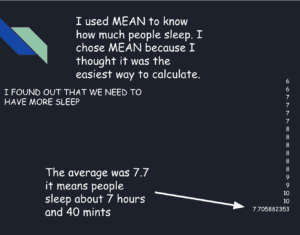
Yes and no. In my experience teaching, I find it quite easy to identify those with atypical sleeping habits by behavior alone, thus why I felt it the perfect subject for the students to explore in our inquiry into the human experience.
It started with a survey. We were studying tools for statistical analysis: averages like mean, median, and mode alongside tools like box and whisker plots and the like. Students generated their own questions from which to practice these skills. Some interviewed their peers on their memory, others on their preferred gaming device, but a few people looked into sleep and student moods. Their takeaways were clear: many in our class feel tired on a daily basis, and the math supported why.
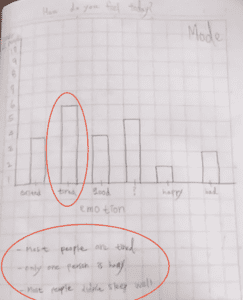
This led to further investigation. Students were genuinely curious about sleep standards for students, and since we were learning about comparing resources and annotated bibliographies anyway, I posed the question for students to research.
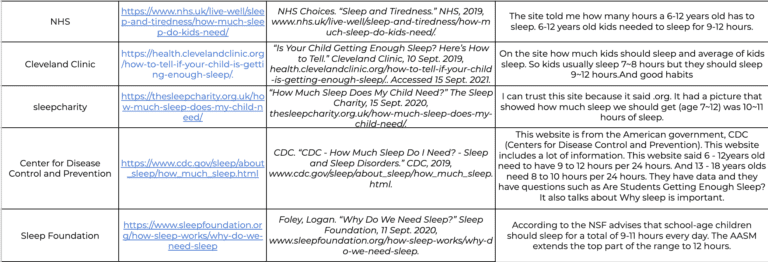
“Sleep–childrens haven’t been having enough sleep these days. Did you know that around 30% of kids in the US haven’t had enough sleep and that scientists say that it could be the start of a public health crisis? They say that over 15% of them are grade 1-6 students.”
“It is also proven that sleeping for 9-11 hours makes your body function the best and that it also improves concentration, attention, behavior, learning and memory. According to the Sleep Foundation, ‘Sleep also supports numerous other aspects of thinking including memory, problem-solving, creativity, emotional processing, and judgment.’ ”
“Children need to have 9-11 hours of sleep because it is proven that they lack attention and behavior skills and this will affect their school performance.”
“Sleeping also helps relieve stress and anxiety. When kids go to school they might be having a hard time so when they sleep it makes them calmer. For example, if I don’t get enough sleep I get grumpy and do not feel good during the day.”
“Sleeping relaxes your body and when I do not get enough sleep I can’t focus well and when you don’t have enough of it you get stressed and sick more often.”
“The amount of sleep you get is the battery you get in the day”
I was impressed with their takeaways, but it begged the question of whether this was a problem shared by the community at large or this class alone. The students were hungry to find out, so they designed and coordinated a massive survey through the PYP. They split into teams and systematically asked every student from Grades 1-6 about their sleep habits from the night before, with an optional survey sent out to the MYP students. Here lie the results:
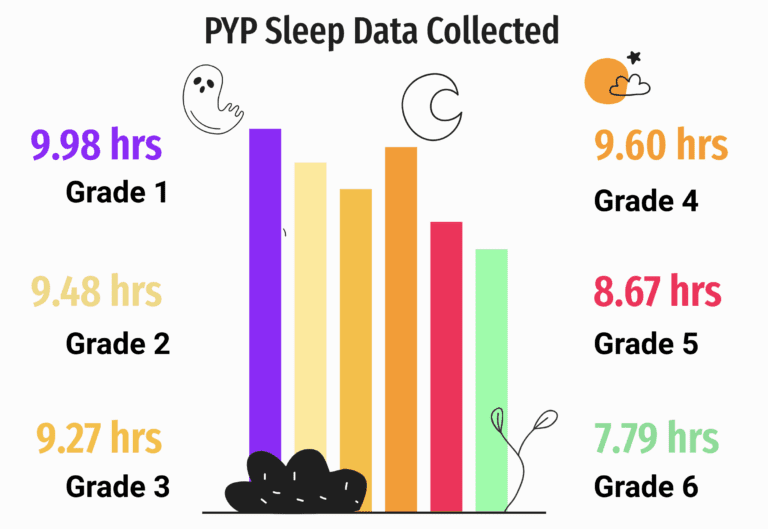
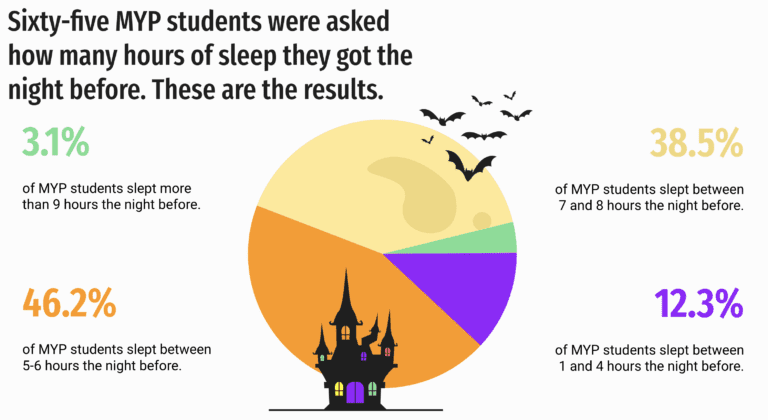
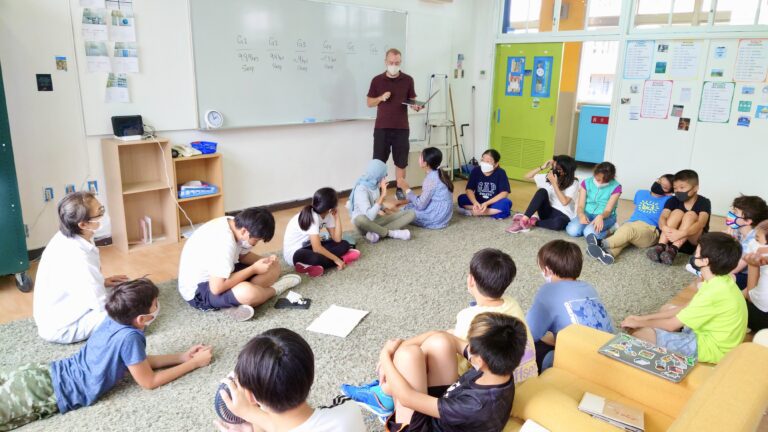
We encountered a gradual decline in sleep across grade levels, a trend that is not reflected in pediatric guidelines for sleep. Why were kids in 5th grade and above getting so little sleep? The reasons students came up with were numerous: games played a larger role in their lives; students had more agency (some even saying they could choose their bedtime); students were chatting more online at night; kids could be sneakier about staying up; and that they all had their own devices for school. All pretty true to experiences and conversations we have shared over the last year and change.
In the week that followed, students tracked their own sleeping patterns. What they found is that their habits did not change, despite the truth being right there in front of them. “It’s so hard to go to bed earlier,” one student said, clearly frustrated. “I want to, but then I end up doing something and forget the time.”

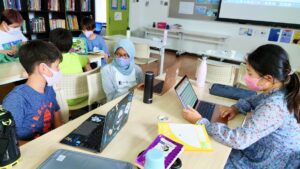
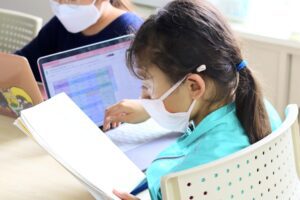
They are not alone in this. As we later wrapped up our unit, we came to the generalization that humans take a long time to develop to be independent, and part of that process requires parents to help make decisions that they cannot make consistently on their own. As one student wrote in their final essay,
“Nowadays, decision-making is more important to the prosperity of everyone. Some experts think that parents should help children to make decisions, while others believe that it is not a good way. Personally, though, I believe that it is better that parents guide their students to have good decisions.”
Above all, we learned that sleep is a vital component of the human experience and has the ability to fundamentally change our lives. While the guidelines are there, it appears students age 10 and up need our help in maximizing their potential. That is the sweetest treat we can provide this holiday season.
Happy Halloween! 🎃

You may have seen the new Netflix documentary ‘Beckham’, about one of England’s most well-known footballers. Near the start, Beckham talks about his school days
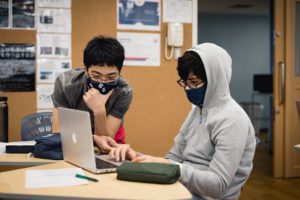
Students who are eligible for Grades 10 or 11 in August 2023 are invited to take the 2022 Scholarship Exam. This exam is the first step to potentially receiving the OYIS Achievement Award.
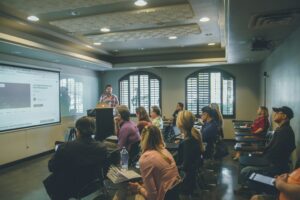
Osaka YMCA International School is hosting a professional learning event on Saturday, February 8, 2025. The focus of the sessions will be Rethinking Assessments, broken

Since November 2022 when ChatGPT was released to the world, it’s seemed that AI has been everywhere in the news. Since then, AI has become

Celebrating Our Teachers: 5 Educators Earn SENIA Level 1 Certification! We are excited to announce that five of our dedicated teachers have recently completed their
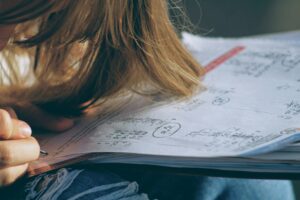
Being Good Enough vs Being Perfect The idea of having to achieve the highest level of perfection is something that often affects the best of
Click here to start your application
Sign in Here
Osaka YMCA International School – Copyright 2025